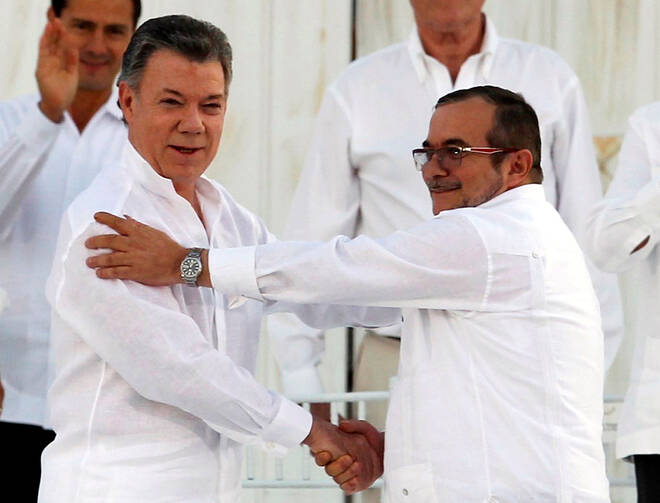Was it political hubris? Bad weather? Fearmongering by critics? Will it be another case of widespread voter’s remorse? The answer appears to be yes to all of the above after a referendum in Colombia pitched a four-year peace process into disarray.
Just under 40 percent of eligible voters in Colombia made it to the ballot box on Oct. 2, a disappointing turnout for a measure that deeply affects the future of the nation. Heavy rain from Hurricane Matthew suppressed the vote in key districts in the north that were strongly in support of the peace accords.
The agreement had been hammered out over years of dialogue in Havana. It transforms the Revolutionary Armed Forces of Colombia (FARC) into an unarmed political participant in the country’s future but includes measures, which many considered too lenient, to reintegrate FARC rebels into Colombian society. Many Colombians wondered why they should accept reconciliation with FARC rather than require meaningful reparations from a group that had practiced kidnapping and drug peddling as part of its “revolutionary” strategy.
After the shock defeat, officially by less than a single percentage point, next steps are unclear, but it is difficult to imagine an unraveling of the peace process and a return to the civil war that has claimed 250,000 lives and led to the displacement of nearly seven million people. Both government and FARC representatives hurried to give assurances that despite the vote, they remained committed to removing guns from Colombia’s political life. The United States could shore up the damaged process immediately by making it clear that while aid to build up a peaceful Colombia will surely be forthcoming, more U.S. aid for war-making will not be an option.








